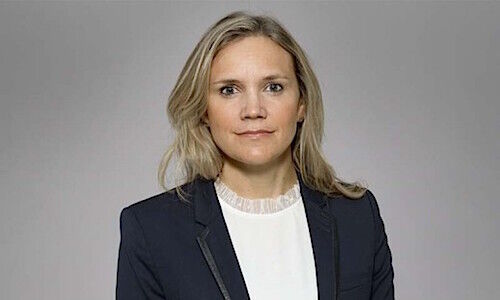Lombard Odier: EM «No Longer Peripheral» in Climate Transition
Especially given the retreat by some developed markets, emerging markets like China are playing an increasingly important role in the global climate transition.
The world’s climate transition is undergoing a structural change, driven in part by the shift in participants away from developed markets like the US, which withdrew from the Paris Agreement for the second time under President Donald Trump, towards emerging markets.
«Emerging markets are no longer peripheral players in the global climate transition, but are now shaping its future,» said a report authored by Sophie Chardon, head of sustainable investments, private bank at Lombard Odier. «Yet their policy priorities remain complex and sometimes contradictory. That is a reflection of emerging markets’ growing autonomy as they work on their own transitions.»
Competing Priorities in China
Such complexities and contradictions can be observed, for example, in China. The report highlights that while the country leads in areas like renewable energy, accounting for 60 percent of solar installations globally, it is also the largest consumer of coal and continues to build coal-fired capacity to meet industrial power demand.
«On 24 September, President Xi Jinping announced a 2035 commitment to cut emissions by 7-10 percent. That falls short of the 20-30 percent cuts that some analysts say are needed to align China with Paris Agreement objectives. This gradual rather than accelerated decarbonization plan leaves room for China to beat its targets, as it has managed to do with previous goals,» Chardon noted.
«We will wait for the next Five-Year Plan, expected in March 2026, to see whether China’s clean energy investments will ensure the structural decline in the use of coal needed over the next few years.»
Climate Financing Gap
In addition to energy, emerging markets are also playing a bigger role in finance, with countries like China and the UAE funding more green projects such as solar installations in Africa and electric vehicle infrastructure in Southeast Asia.
«Still, many economies, both developed and emerging, face challenges: limited access to green capital, shallow markets, and fragmented regulations,» Chardon said.
«The gap in climate investment remains significant. These countries need approximately $2 trillion annually to mitigate the impact of climate change, and $400 billion each year to adapt their economies, yet only $72 billion was invested in adaptation programs as recently as 2022, according to the United Nations Environment Program in 2024.»
Market Demand
Within financial markets, Lombard Odier looks for sustainable emerging market equities that demonstrate scalable innovation and resilience, especially those firms that have the means to maintain high margins and defend their market share. On fixed income, the bank sees interest in ‘labelled’ green, social and sustainability bonds as well as blended finance structures that combine public or philanthropic capital with commercial capital.
«For investors seeking to put their capital to work with a purpose, emerging markets offer more than just portfolio diversification and financial opportunities,» Chardon concluded. «They can provide access to the next wave of global transformation, where climate ambition converges with innovation, resilience and inclusive growth.»


























